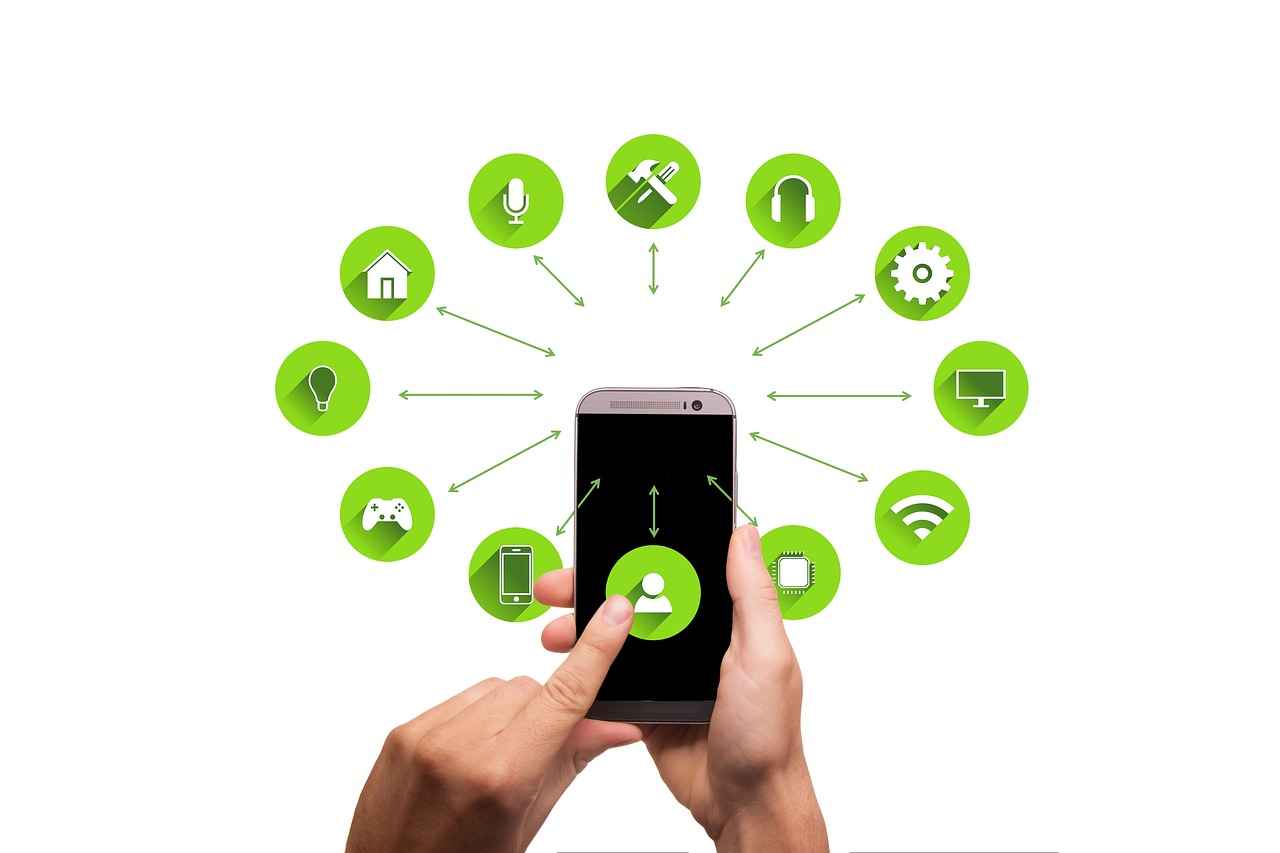In today’s fast-paced world, smart home devices have become essential for enhancing convenience, security, and energy efficiency. This guide explores the top gadgets that can automate your home, making daily life simpler and more enjoyable.
1. Smart Speakers
Smart speakers, such as Amazon Echo and Google Nest, act as the central hub of your smart home. They allow you to control various devices, play music, and access information using simple voice commands. This hands-free convenience makes everyday tasks easier and more efficient.
2. Smart Thermostats
Devices like the Nest Learning Thermostat learn your schedule and preferences, optimizing your heating and cooling systems. By adjusting temperatures automatically, they help you save on energy costs while ensuring your home remains comfortable.
3. Smart Security Cameras
Enhancing your home security is crucial, and smart security cameras provide a reliable solution. They allow remote monitoring of your property and send alerts for any suspicious activities, giving you peace of mind whether you’re home or away.
4. Smart Lighting Systems
Smart lighting systems, such as Philips Hue, offer customizable options for brightness and color. You can control your lighting remotely, set schedules, and even create scenes that match your mood, all while improving energy efficiency.
5. Smart Door Locks
With smart door locks, keyless entry becomes a reality. You can lock and unlock your doors remotely, monitor access for family and guests, and enhance your home’s security without the hassle of traditional keys.
6. Smart Plugs
Transform ordinary appliances into smart devices with smart plugs. These gadgets allow you to control your home’s electrical outlets from anywhere, enabling automation and adding convenience to your daily routines.
7. Smart Home Hubs
Smart home hubs integrate various devices into a single platform, facilitating seamless communication and control. This centralization simplifies the management of your smart home, ensuring a cohesive experience.
8. Smart Appliances
Innovations in smart appliances, from refrigerators to washing machines, enhance functionality and efficiency. These devices can be controlled remotely, offering convenience in managing household chores.
9. Smart Sensors
Smart sensors monitor conditions such as temperature, humidity, and motion. They provide valuable data for automating systems in your home, contributing to both security and energy efficiency.
10. Smart Entertainment Systems
Streamline your media experience with smart entertainment systems. You can control TVs, speakers, and streaming services through voice commands or apps, creating a more enjoyable home entertainment environment.
11. Smart Garden Devices
For gardening enthusiasts, smart garden devices automate tasks like watering and monitoring soil health. These tools make gardening easier and more efficient, allowing you to enjoy your plants without the constant upkeep.
12. Future Trends in Smart Home Technology
As technology evolves, emerging trends in smart home devices include AI integration, enhanced security features, and sustainability efforts. These advancements promise to revolutionize home automation, making it even more accessible and efficient.
In conclusion, investing in smart home devices can significantly improve your quality of life. By enhancing convenience, security, and energy efficiency, these gadgets not only make daily tasks easier but also contribute to a more connected and automated home.

1. Smart Speakers
Smart speakers have revolutionized the way we interact with technology in our homes. These devices serve as central hubs that not only control other smart devices but also provide entertainment and information at the sound of your voice. With the growing popularity of smart home technology, understanding the benefits of smart speakers is essential for anyone looking to enhance their living space.
One of the primary advantages of smart speakers is their ability to streamline daily tasks. With simple voice commands, you can manage your home environment effortlessly. For instance, you can adjust the lighting, control the thermostat, or even lock your doors without lifting a finger. This level of convenience is especially beneficial for individuals with mobility challenges or busy lifestyles.
In addition to home automation, smart speakers are excellent for entertainment. You can play your favorite music, listen to podcasts, or access audiobooks simply by asking. Many smart speakers also offer multi-room audio capabilities, allowing you to enjoy synchronized music throughout your home. This feature makes them a perfect addition for hosting gatherings or simply enjoying a relaxing evening.
Moreover, smart speakers provide immediate access to information and assistance. Whether you need to know the weather forecast, set reminders, or look up recipes, these devices can help you save time and stay organized. Integration with virtual assistants like Alexa, Google Assistant, or Siri means you can have a personal assistant at your beck and call.
Security is another significant benefit. Many smart speakers can connect with security cameras and alarm systems, enabling you to monitor your home and receive alerts about suspicious activities. This feature enhances peace of mind, knowing that your home is protected even when you are not there.
In conclusion, smart speakers are more than just voice-activated devices; they are powerful tools that can transform your home into a more efficient and enjoyable space. By integrating various functionalities, they simplify daily routines, provide entertainment, and enhance security, making them an indispensable part of modern living.
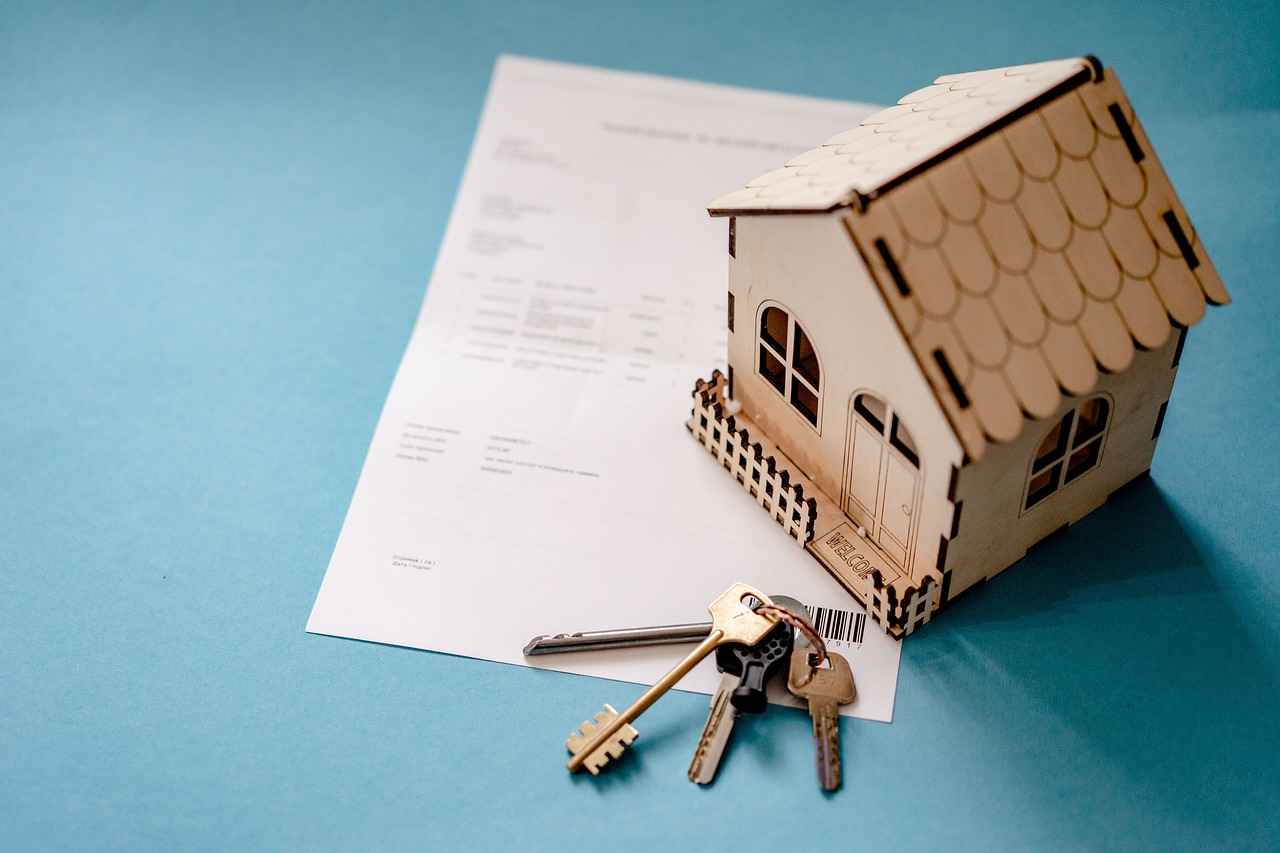
2. Smart Thermostats
Smart thermostats are revolutionizing the way we manage energy consumption in our homes. These devices not only help in reducing heating and cooling costs, but they also create a more comfortable living environment by adapting to your lifestyle. By learning your daily schedule and temperature preferences, smart thermostats optimize energy usage effectively.
One of the key features of smart thermostats is their ability to learn and adapt. Initially, they might require some manual input regarding your preferred temperatures at different times of the day. However, over time, they gather data on your habits and adjust settings automatically. For example, if you typically lower the temperature at night, the thermostat will begin to do this for you without needing any prompts.
Moreover, smart thermostats can be controlled remotely through smartphone apps, allowing you to adjust settings from anywhere. This means that if you’re returning home from work earlier than usual, you can easily raise the temperature to ensure your home is warm and inviting upon your arrival. Additionally, many models offer features such as geofencing, which detects when you leave or approach home and adjusts the temperature accordingly.
Another significant advantage is the energy-saving potential. According to various studies, smart thermostats can help homeowners save up to 30% on their energy bills. They achieve this by minimizing unnecessary heating and cooling when you’re not home, thus contributing to both your wallet and the environment.
In conclusion, investing in a smart thermostat is not just about convenience; it’s a step towards a more sustainable and cost-effective home. With their ability to learn your habits and preferences, these devices are essential for anyone looking to enhance their home’s energy efficiency.
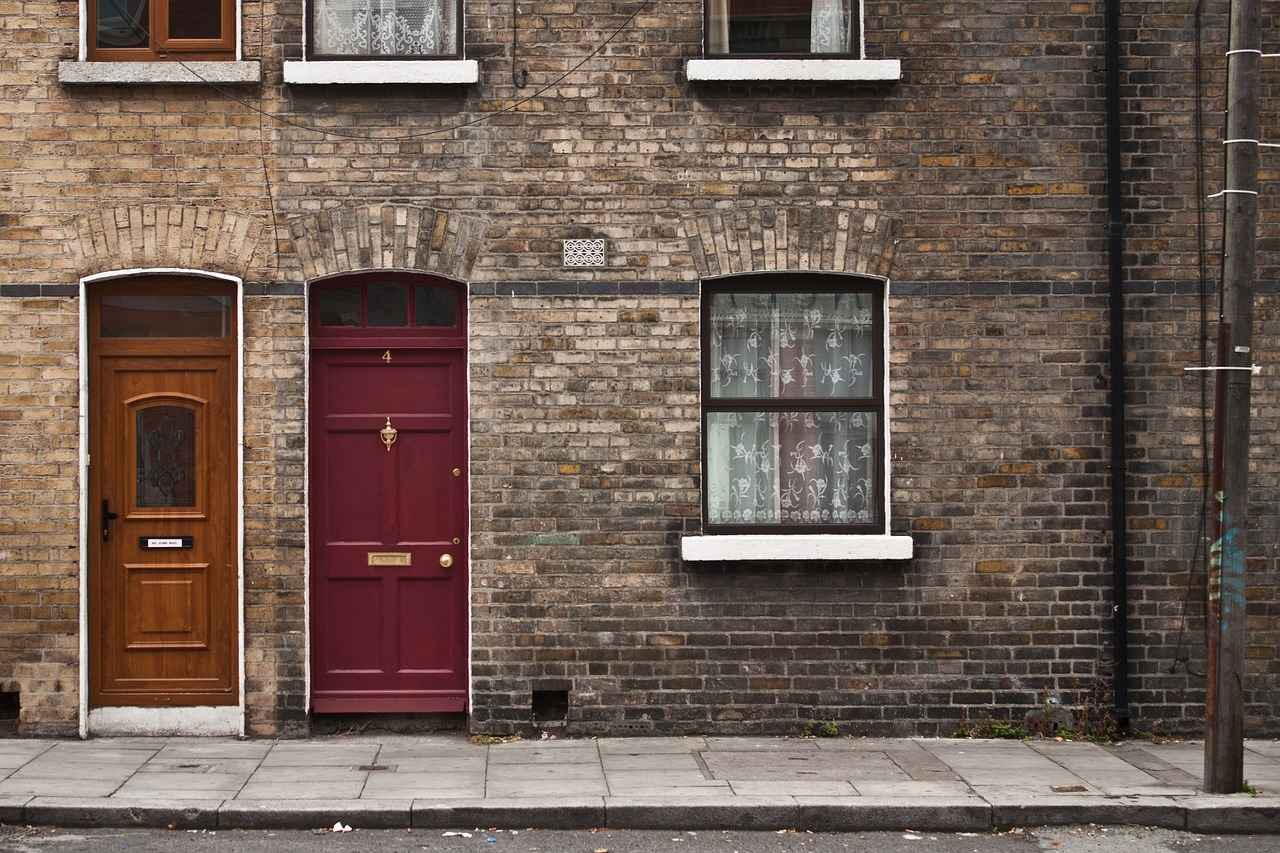
3. Smart Security Cameras
Smart Security Cameras have become an essential component in modern home security systems, offering homeowners peace of mind and enhanced protection for their properties. These advanced devices not only allow for real-time monitoring but also provide a range of features that significantly improve overall security.
One of the primary advantages of smart security cameras is their ability to enable remote monitoring. Homeowners can access live video feeds from their smartphones or tablets, allowing them to keep an eye on their property from anywhere in the world. This feature is particularly useful for individuals who travel frequently or are away from home for extended periods.
In addition to remote access, smart security cameras are equipped with motion detection capabilities. These cameras can send instant alerts to your mobile device when they detect unusual activity, allowing you to respond quickly to potential threats. This feature is crucial for preventing break-ins and ensuring that you are always aware of what is happening around your home.
Moreover, many smart security cameras come with advanced features such as night vision, two-way audio, and cloud storage options. Night vision ensures that your property is monitored even in low-light conditions, while two-way audio allows for communication with visitors or intruders, adding an extra layer of security. Cloud storage options provide peace of mind by ensuring that recorded footage is securely stored and easily accessible when needed.
Investing in smart security cameras is a proactive step towards safeguarding your home. With their ability to monitor your property remotely and alert you to suspicious activities, these devices are invaluable for enhancing your home security. As technology continues to evolve, the features and capabilities of smart security cameras will only improve, making them an essential tool for any homeowner.

4. Smart Lighting Systems
Smart Lighting Systems have revolutionized the way we illuminate our homes, providing not just light, but a customizable experience that enhances both ambiance and energy efficiency. These systems allow users to control brightness, color, and schedules from virtually anywhere, making them an essential component of modern smart homes.
With smart lighting, you can easily adjust the mood of your space to suit any occasion. Whether you’re hosting a dinner party, enjoying a cozy movie night, or simply winding down after a long day, the ability to change the color and intensity of your lights at the touch of a button is a game changer. Many systems even offer pre-set scenes that can be activated with a single command.
One of the standout features of smart lighting systems is their energy efficiency. By using LED bulbs that can be dimmed and scheduled, you can significantly reduce your energy consumption. For instance, you can set your lights to turn off automatically during the day or dim when you are not home, thus optimizing your energy use and lowering your electricity bills.
Moreover, the integration of smart lighting with other smart home devices enhances convenience. Imagine arriving home and having your lights automatically turn on as you walk through the door, or receiving alerts if lights are left on when you leave the house. This level of control not only adds to your comfort but also contributes to your home’s security.
In conclusion, smart lighting systems provide a versatile and efficient way to manage your home’s lighting needs. Their ability to adapt to your lifestyle, combined with energy-saving features, makes them a valuable addition to any smart home setup. As technology continues to evolve, the possibilities for smart lighting are only set to expand, promising even greater convenience and efficiency in the future.
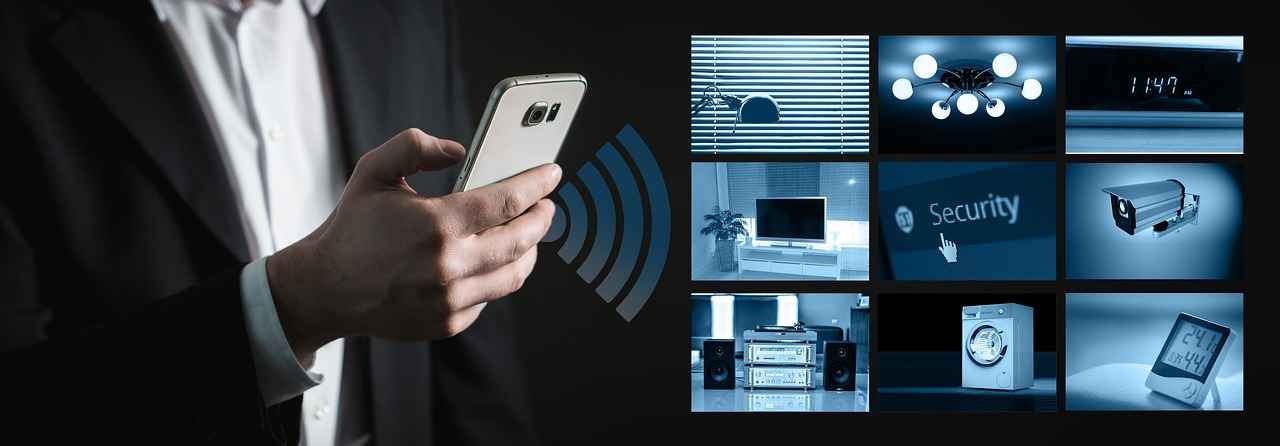
5. Smart Door Locks
Smart door locks are revolutionizing home security by providing a modern solution for keyless entry and enhanced convenience. These innovative devices allow homeowners to lock and unlock their doors remotely, offering peace of mind and flexibility in managing access to their homes.
One of the most significant advantages of smart door locks is their keyless entry feature. This means you no longer have to worry about losing your keys or being locked out. Instead, you can use your smartphone or a designated key fob to gain access. This technology is particularly beneficial for families, as it allows parents to grant access to children or guests without the need for physical keys.
Furthermore, many smart door locks come equipped with remote locking and unlocking capabilities. This feature allows you to control your door from anywhere, whether you’re at work, on vacation, or simply in another room. You can easily lock the door after your children leave for school or unlock it for a guest arriving while you’re away.
Another essential aspect of smart door locks is their ability to monitor access. Most models provide users with alerts and notifications whenever someone enters or exits the home. This feature is particularly valuable for keeping track of who is coming and going, giving you greater control over your household’s security. You can also set temporary access codes for guests, ensuring they can enter without compromising your security.
In conclusion, smart door locks offer a blend of convenience and security that traditional locks simply cannot match. With features like keyless entry, remote access, and detailed monitoring, these devices are an essential addition to any modern home. As technology continues to advance, investing in smart door locks can significantly enhance your home’s overall security and ease of use.
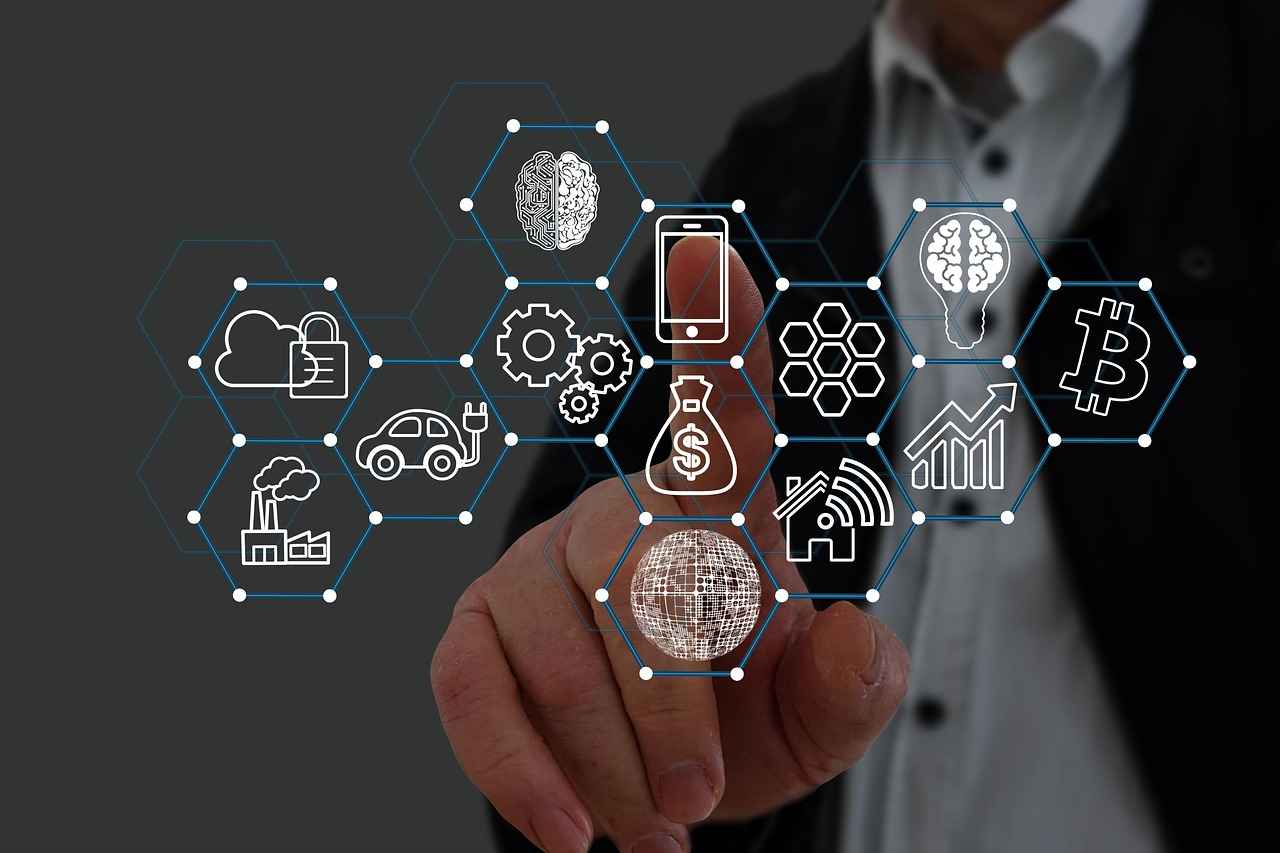
6. Smart Plugs
Smart plugs are rapidly gaining popularity as essential components of modern smart homes. These devices provide a simple yet effective way to convert ordinary appliances into smart devices, enabling users to control their home’s electrical outlets remotely. With smart plugs, you can automate your home and enhance your daily convenience.
One of the most appealing aspects of smart plugs is their ease of use. Simply plug the device into an existing outlet and connect your appliance to the smart plug. Once set up, you can control the appliance through a mobile app or voice commands via a smart speaker. This allows you to turn devices on or off from anywhere, whether you’re at home or away. Imagine being able to switch on your coffee maker from your bed or turn off the iron after leaving the house—smart plugs make this possible.
In addition to remote control, smart plugs also offer automation features. You can create schedules for your appliances, ensuring that they operate only when needed. For instance, you can program your lights to turn on at sunset or have your fan start cooling your home before you arrive. This level of control not only enhances convenience but also contributes to energy efficiency by reducing unnecessary power consumption.
Moreover, many smart plugs are equipped with energy monitoring capabilities. This feature allows you to track the energy usage of connected devices, helping you identify which appliances consume the most power. By understanding your energy consumption patterns, you can make informed decisions to reduce your electricity bills.
In conclusion, smart plugs are a transformative addition to any smart home setup. They provide flexibility, convenience, and energy efficiency, making them a worthwhile investment for anyone looking to automate their living space. Embrace the future of home automation with smart plugs and enjoy the benefits they bring to your daily life.
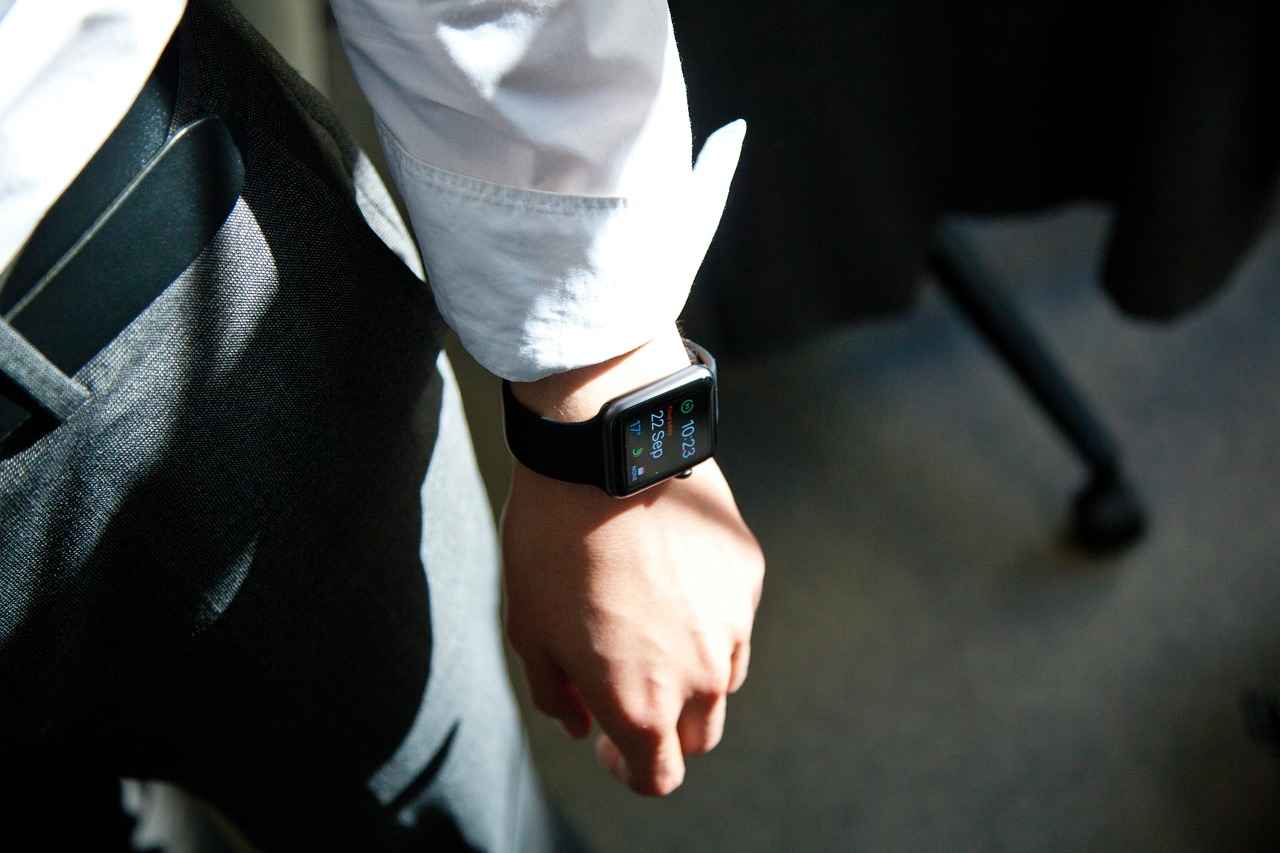
7. Smart Home Hubs
In the rapidly evolving world of smart home technology, smart home hubs play a crucial role in creating a unified and efficient living environment. These devices serve as the central command center for your smart home, allowing you to integrate various gadgets and appliances into a single platform. This integration facilitates seamless communication and control, enhancing your overall smart home experience.
Smart home hubs connect to a range of devices, including lights, thermostats, security cameras, and more, enabling you to manage them from one application or interface. This centralization not only simplifies control but also enhances the functionality of your devices. For instance, you can set up routines where your lights dim, the thermostat adjusts, and the security system activates—all with a single command or at a predetermined time.
Many smart home hubs support a wide variety of protocols, such as Zigbee, Z-Wave, and Wi-Fi, ensuring compatibility with numerous devices from different manufacturers. This versatility allows homeowners to mix and match devices according to their needs, without being tied to one brand or ecosystem.
Additionally, smart home hubs often come equipped with voice control capabilities, allowing users to manage their smart home through simple voice commands. This feature not only adds convenience but also enhances accessibility for individuals with mobility challenges.
When choosing a smart home hub, consider factors such as compatibility with your existing devices, ease of use, and the range of features offered. Popular options include the Amazon Echo Plus, Google Nest Hub, and Samsung SmartThings Hub, each providing unique functionalities to cater to diverse user preferences.
In conclusion, investing in a smart home hub can significantly enhance your smart home experience by offering a cohesive and streamlined approach to managing your devices. With the right hub, you can enjoy a more connected and efficient home environment, making everyday tasks easier and more enjoyable.
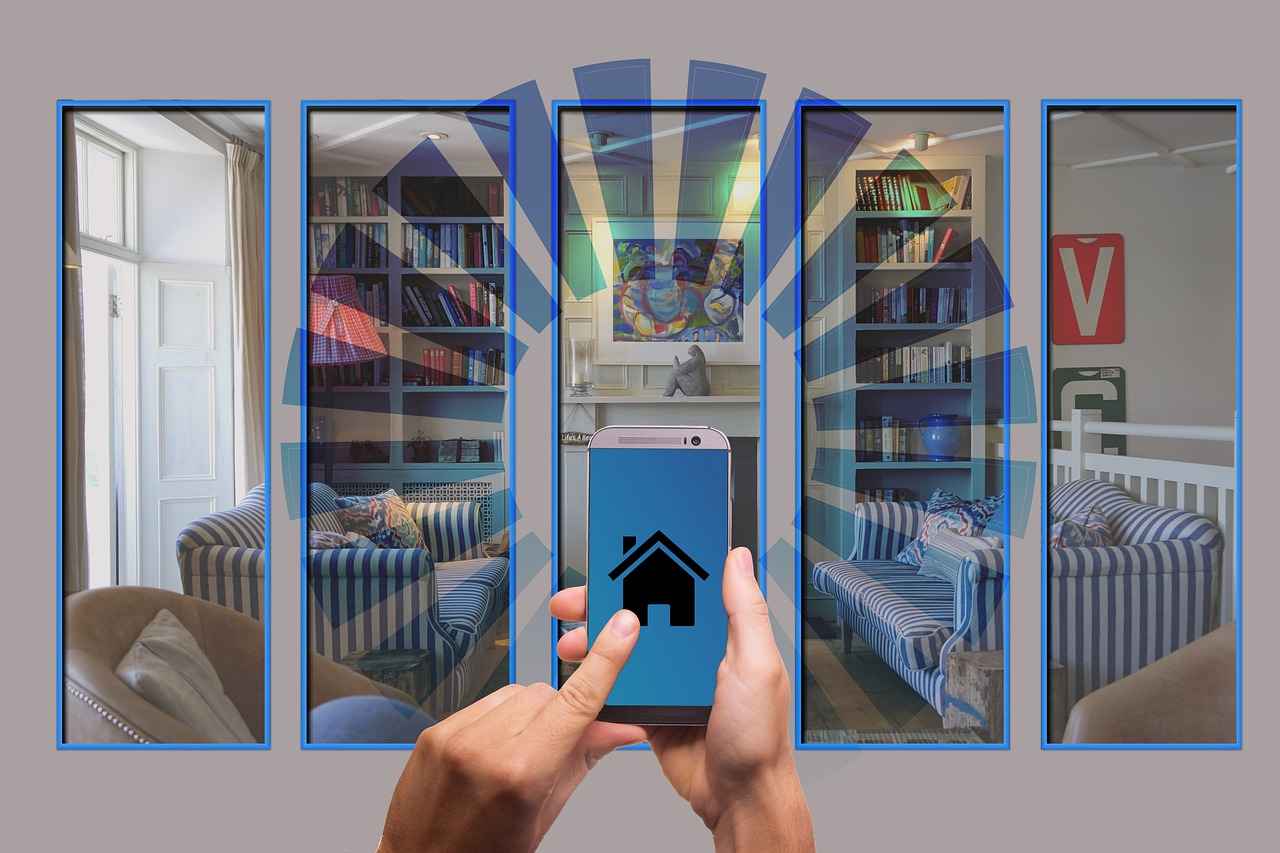
8. Smart Appliances
Smart appliances have revolutionized the way we manage our homes, particularly in the kitchen and laundry. These innovative devices are designed to enhance functionality and efficiency, making everyday tasks easier and more enjoyable. From cutting-edge refrigerators to advanced washing machines, smart appliances are equipped with features that cater to the needs of modern households.
One of the most exciting aspects of smart appliances is their ability to connect to the internet. This connectivity allows users to control their devices remotely via smartphone apps, making it possible to manage household chores even when you’re not at home. For instance, you can preheat your oven while on your way back from work or start your washing machine from the comfort of your couch.
Smart refrigerators, for example, come with features like touchscreen interfaces, internal cameras, and inventory management systems. These functionalities help you keep track of food items, suggest recipes based on available ingredients, and even create shopping lists. Such features not only save time but also reduce food waste.
In the laundry room, smart washing machines and dryers offer customizable wash cycles and energy-efficient settings. Many models can sense the load size and adjust water and detergent usage accordingly, providing an eco-friendly solution to laundry. Additionally, notifications can alert you when a cycle is complete, ensuring you never forget about your laundry again.
As smart appliances continue to evolve, we can expect even more innovations that prioritize energy efficiency and sustainability. By integrating AI technology, these devices will learn from user habits and preferences, further enhancing their functionality. Investing in smart appliances not only simplifies household management but also contributes to a more sustainable lifestyle.
In conclusion, smart appliances are an essential part of modern living. They not only improve the efficiency of daily tasks but also offer a level of convenience that traditional appliances cannot match. As technology continues to advance, the possibilities for smart appliances are limitless.
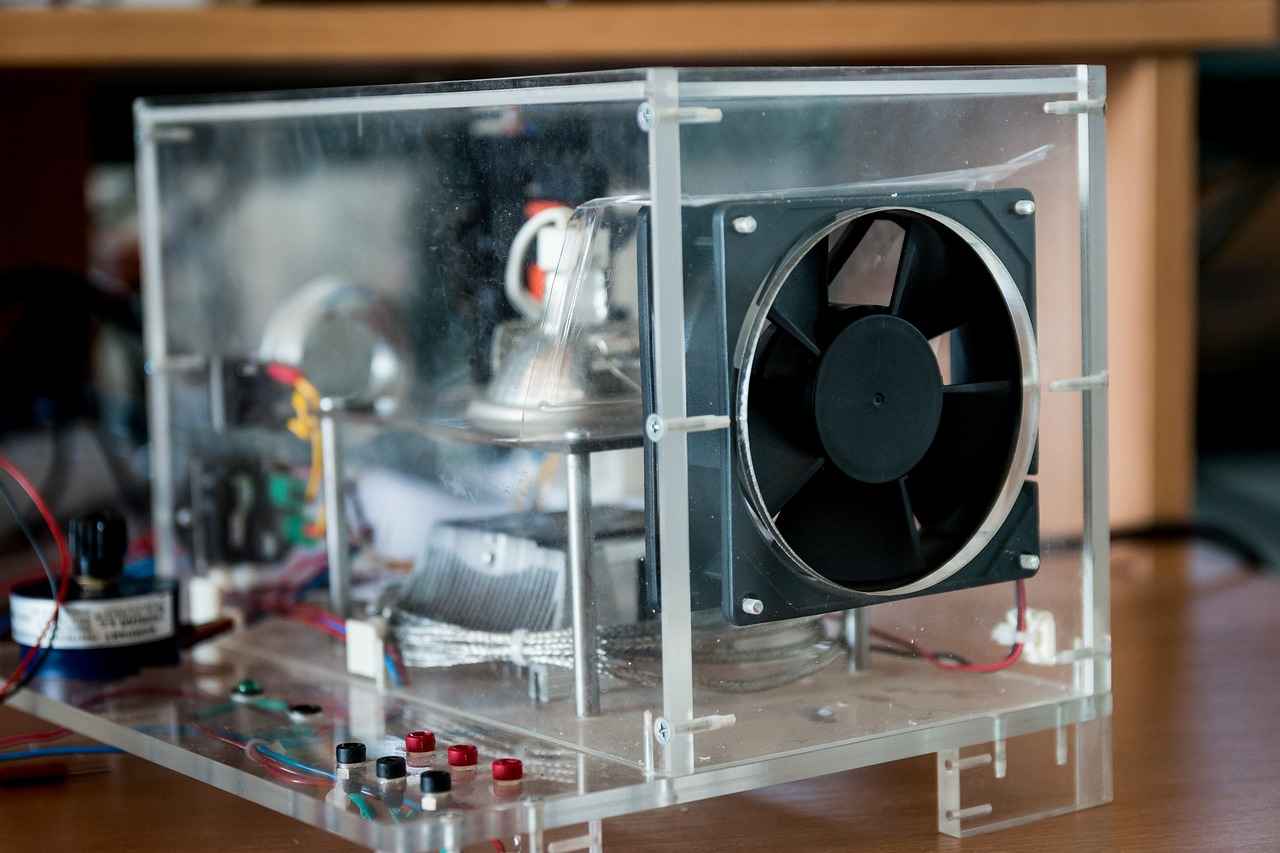
9. Smart Sensors
Smart sensors are an essential component of modern smart home technology, playing a crucial role in monitoring various home conditions. These devices are designed to track temperature, humidity, and motion, providing invaluable data that can significantly enhance home automation and security.
One of the primary functions of smart sensors is to maintain a comfortable living environment. For instance, smart temperature sensors can adjust your heating or cooling systems based on real-time data, ensuring that your home remains at an optimal temperature. This not only enhances comfort but also contributes to energy efficiency, potentially lowering your utility bills.
Humidity sensors, on the other hand, play a vital role in preventing issues such as mold growth and structural damage. By monitoring moisture levels, these sensors can trigger dehumidifiers or ventilation systems when necessary, helping to maintain a healthy indoor atmosphere.
Moreover, motion sensors are integral to home security systems. They can detect movement within or around your property, sending alerts to your smartphone or smart hub. This feature allows homeowners to monitor their premises in real-time, providing peace of mind and enhancing overall security.
In addition to these functionalities, smart sensors can work in conjunction with other smart devices. For example, a smart thermostat can utilize data from temperature and humidity sensors to optimize heating and cooling schedules automatically. This interconnectedness not only streamlines home automation but also creates a more responsive living environment tailored to your needs.
In summary, smart sensors are a pivotal aspect of smart home systems, offering real-time monitoring and automation capabilities that enhance comfort, security, and energy efficiency. As technology continues to evolve, the role of smart sensors will undoubtedly expand, paving the way for even smarter home environments.
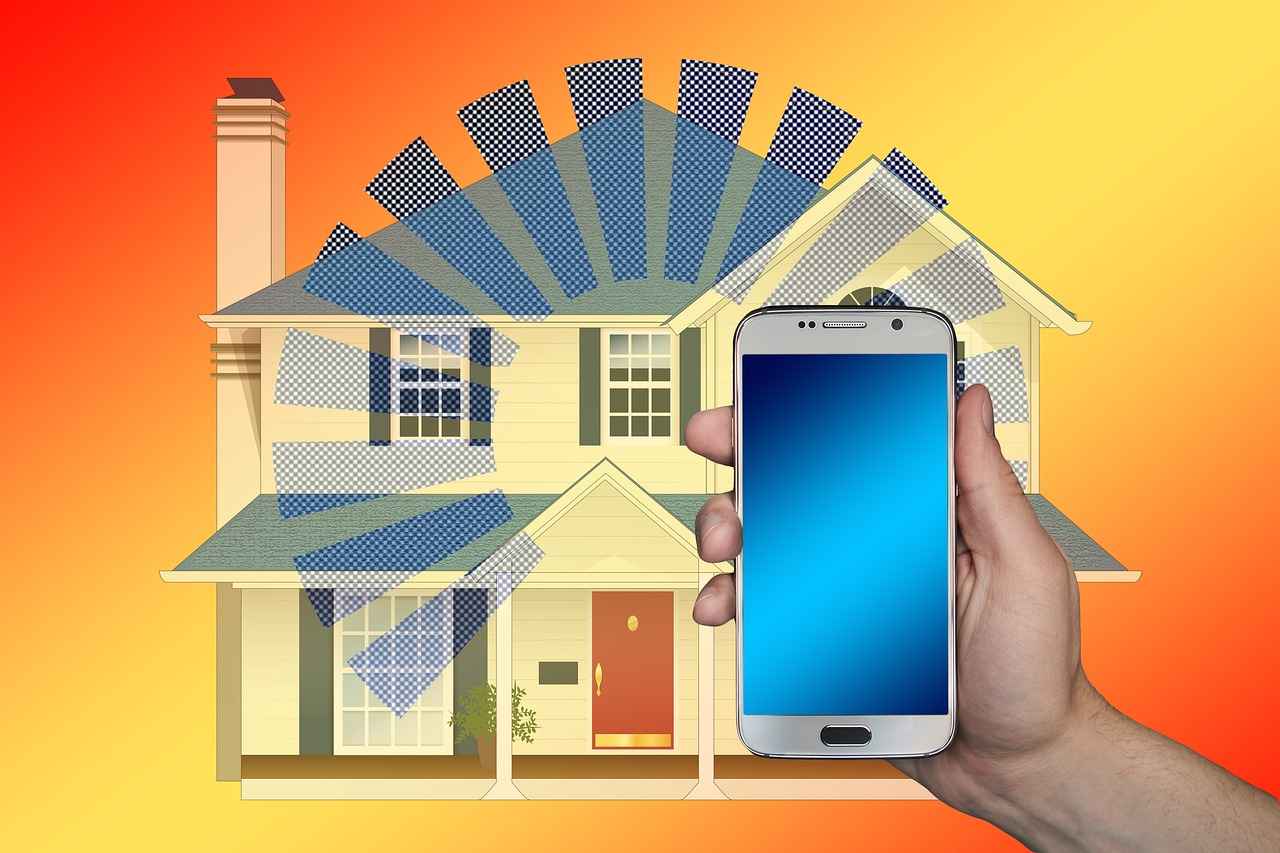
10. Smart Entertainment Systems
Smart Entertainment Systems have revolutionized the way we consume media, making our viewing and listening experiences more integrated and user-friendly. With these advanced systems, you can seamlessly control your TVs, speakers, and streaming services using simple voice commands or through dedicated mobile applications. This not only enhances convenience but also enriches your overall media experience.
One of the key benefits of smart entertainment systems is their ability to centralize control. Imagine being able to adjust the volume of your speakers, change channels on your TV, or even browse through your favorite streaming services, all without having to juggle multiple remotes or devices. With a smart entertainment system, everything is accessible from one interface, simplifying your media consumption.
Additionally, these systems often come equipped with voice recognition technology. This feature allows you to issue commands hands-free, making it easier to enjoy your favorite shows or music while multitasking. For example, you can say, “Play my workout playlist” or “Turn on the living room TV,” and the system will execute your request promptly.
Moreover, many smart entertainment systems are designed to integrate with other smart home devices. This means you can create a cohesive environment where your lights dim automatically when you start a movie, or your thermostat adjusts to a comfortable temperature during your viewing sessions. Such automation not only enhances your experience but also promotes energy efficiency.
In conclusion, investing in a smart entertainment system can significantly streamline your media experience, offering a blend of convenience, control, and integration that traditional setups simply can’t match. As technology continues to evolve, these systems will only get smarter, providing even more innovative features to enhance your home entertainment.

11. Smart Garden Devices
Smart Garden Devices are revolutionizing the way we approach gardening, making it not only easier but also more efficient. As technology continues to advance, these devices offer innovative solutions for both novice and experienced gardeners alike. In this section, we will explore the various types of smart garden devices that can automate watering, monitor soil health, and assist in managing plant care.
- Automated Watering Systems: These systems utilize sensors to determine when your plants need water. By automating the watering process, you can ensure that your plants receive the right amount of moisture without the risk of overwatering.
- Soil Health Monitors: These devices measure soil pH, moisture levels, and nutrient content, providing real-time data that helps you understand your garden’s needs. With this information, you can make informed decisions about fertilization and watering.
- Smart Plant Care Apps: Many smart garden devices come with accompanying apps that allow you to track your plants’ health, set reminders for watering and fertilizing, and even receive tips based on your specific plant types.
- Weather Sensors: These devices monitor local weather conditions, helping you adjust your gardening practices accordingly. For instance, if rain is expected, you can delay watering to conserve water.
- Automated Grow Lights: For indoor gardening, smart grow lights can be programmed to mimic sunlight, ensuring your plants receive the right amount of light for optimal growth.
By integrating these smart garden devices into your gardening routine, you can save time, reduce water usage, and improve the overall health of your plants. Whether you are looking to maintain a small herb garden or manage a larger vegetable patch, these tools can significantly enhance your gardening experience.
In conclusion, smart garden devices offer a modern solution to traditional gardening challenges. With their ability to automate and monitor essential tasks, these devices not only make gardening easier but also more enjoyable. Embrace the future of gardening and let technology do the hard work for you!

12. Future Trends in Smart Home Technology
Future Trends in Smart Home Technology
The landscape of smart home technology is evolving at an unprecedented pace, driven by innovations in artificial intelligence, enhanced security measures, and a growing focus on sustainability. As homeowners increasingly seek to automate their living spaces for convenience, safety, and energy efficiency, several key trends are emerging that promise to revolutionize the way we interact with our homes.
- AI Integration: The integration of artificial intelligence into smart home devices is transforming user experiences. AI-powered systems can learn from user behavior, making predictive adjustments to enhance comfort and efficiency. For example, smart thermostats can adapt to your daily routines, optimizing heating and cooling based on your preferences.
- Enhanced Security Features: With the rise of smart security systems, homeowners are now able to monitor their properties in real-time through advanced features such as facial recognition, motion detection, and remote access. These technologies not only provide peace of mind but also enable users to respond swiftly to potential threats.
- Sustainability Efforts: As environmental concerns become more pressing, smart home technology is increasingly focusing on sustainability. Devices such as smart energy meters and eco-friendly appliances help reduce energy consumption, allowing homeowners to track their usage and minimize their carbon footprint.
- Interconnectivity: The future of smart homes lies in the seamless integration of devices. Smart home hubs are becoming essential, enabling various devices to communicate effectively, creating a cohesive ecosystem that enhances user control and automation.
- Voice Control and Automation: Voice-activated assistants are becoming more sophisticated, allowing users to control multiple devices with simple commands. This trend not only enhances convenience but also makes smart home technology more accessible to a broader audience.
In conclusion, the future of smart home technology is bright, with innovations that promise to enhance our daily lives. By embracing these emerging trends, homeowners can look forward to a more secure, efficient, and sustainable living environment.
Frequently Asked Questions
- What are smart home devices?
Smart home devices are gadgets that connect to the internet, allowing you to control them remotely or automate their functions. They enhance convenience, security, and energy efficiency in your daily life.
- How do smart speakers work?
Smart speakers act as central hubs, enabling you to control other smart devices, play music, and access information using voice commands. They make everyday tasks simpler and more enjoyable!
- Can smart thermostats really save me money?
Absolutely! Smart thermostats learn your schedule and preferences, optimizing energy usage. This means you can save on heating and cooling costs while keeping your home comfortable.
- Are smart security cameras worth it?
Yes! Smart security cameras enhance your home’s security by allowing you to monitor your property remotely and receive alerts about suspicious activities, giving you peace of mind.
- What can I do with smart plugs?
Smart plugs turn ordinary appliances into smart devices, letting you control them remotely and automate your home’s electrical outlets for added convenience and energy savings.
- How do smart home hubs work?
Smart home hubs integrate various smart devices into a single platform, enabling seamless communication and control, which creates a cohesive smart home experience.
- What are some future trends in smart home technology?
Future trends include AI integration, enhanced security features, and sustainability efforts that promise to revolutionize home automation, making your life even easier!

